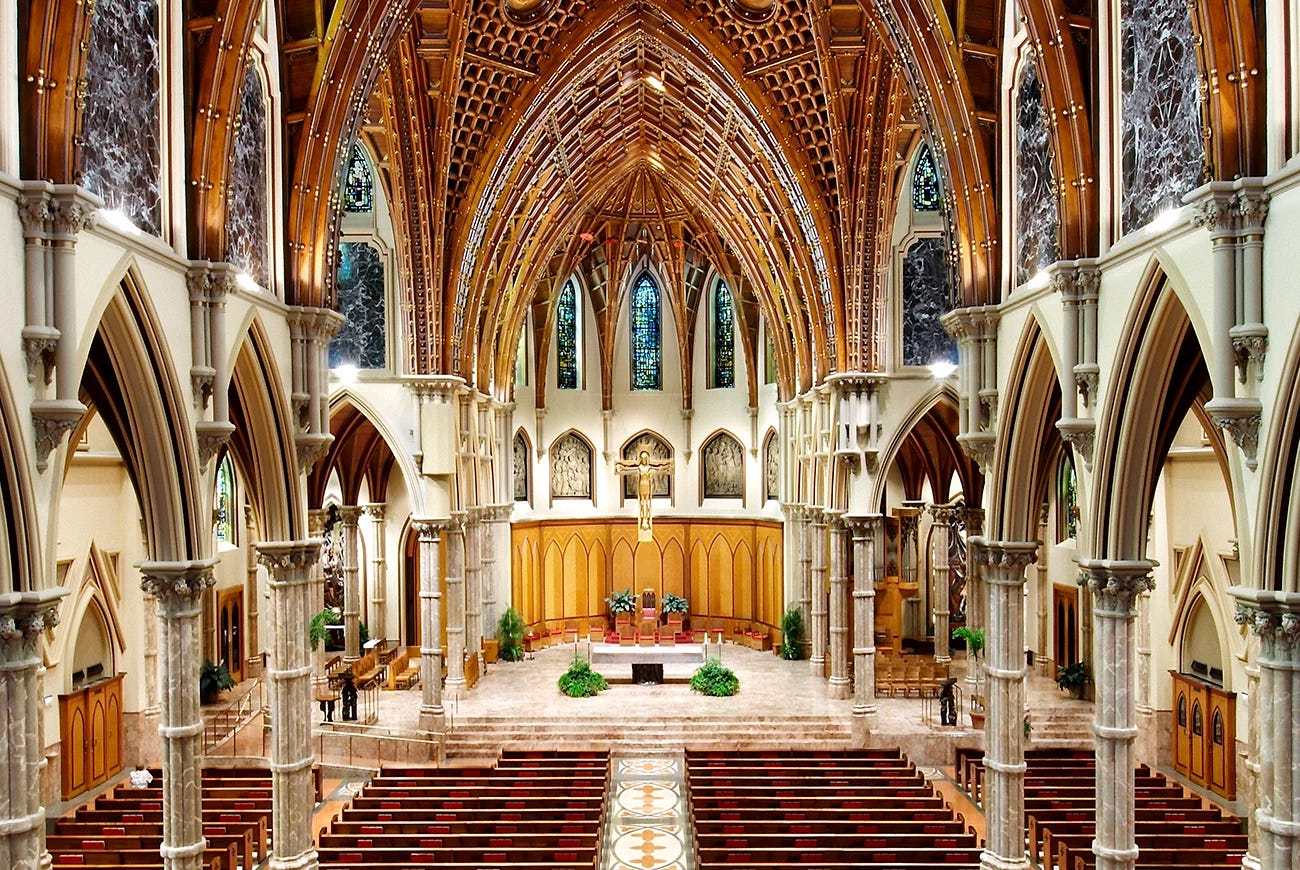Chicago archdiocese dispenses from 'unusual' Immaculate Conception precept
Manage episode 447711713 series 3549307
The Archdiocese of Chicago dispensed Catholics last week from the obligation to attend Mass this year on the Solemnity of the Immaculate Conception, which falls in 2024 on Monday, Dec. 9.
The dispensation comes after a Vatican clarification last month that the December solemnity — which usually takes place on Dec. 8 — should be regarded in the U.S. as a day of obligation even in years when its observation is moved to Dec. 9, despite prior practice to the contrary.
“This decree establishes that the obligation linked to the Feast of the Immaculate Conception, which has been transferred to Monday, Dec. 9, 2024, is hereby suppressed in the Archdiocese of Chicago,” Cardinal Blase Cupich wrote in an Oct. 22 decree obtained by The Pillar.
“No member of the Catholic Faithful is obligated to attend Mass on December 9, 2024,” the cardinal added.
Cupich’s decree outlined confusion over whether the Immaculate Conception would be regarded in 2024 as a day of obligation, on which Catholics are required to attend Mass.
The source of that confusion begins with the fact that Dec. 8, the day on which the Immaculate Conception is celebrated, is this year a Sunday — and according to the Church’s liturgical law, when a solemnity falls on a Sunday during Advent, Lent, and Easter, it is automatically transferred in the liturgical calendar to the following Monday.
But the USCCB has said in years past that when the solemnity moves to a Monday, “the obligation to attend Mass does not transfer as well.”
In light of that declaration, dioceses across the country — Chicago among them — noted in their annually published liturgical instructions for 2024, called liturgical ordos, that the Immaculate Conception, celebrated Dec. 9, “is not a holy day of obligation this year.”
From there, local parish and diocesan calendars printed across the country noted the same thing.
But a September legal clarification from the Vatican’s Dicastery for Legislative Texts changed all that.
In a letter to Bishop Thomas Paprocki, chair of the USCCB’s canonical affairs committee, the dicastery explained that the Immaculate Conception, along with several other feasts, “are always days of obligation… even when the … transfer of the feast occurs.”
“The feast must be observed as a day of obligation on the day to which it is transferred,” the Vatican stated.
That clarification meant that the USCCB had seemingly been interpreting canon law incorrectly — possibly because the bishops’ conference had abrogated the obligation to attend Mass when certain feast days happened to fall on Saturdays or Mondays — but not including the Immaculate Conceptions.
The result of the Vatican’s clarification was that in Chicago, and in dioceses across the country, while no Immaculate Conception holy day of obligation had been expected, the Vatican said there should be one.
Cupich’s degree acknowledged that “unusual circumstances” of December’s Immaculate Conception obligations would likely cause confusion, especially because the diocesan liturgical ordo said that December 9 would not be a day of precept, and “several Catholic calendars” had followed suit.
“As a consequence, there is a great possibility that some Catholics may choose wrongly in not attending Mass on the transferred Feast of the Patroness of our Archdiocese and our Nation, thinking that there is no obligation. Some Catholic faithful may be upset by the lack of participation by other Catholics, and some Catholics may have a disturbed conscience since the choice is not absolutely clear, depending on the source material they possess.”
Those possibilities, the cardinal wrote, led him to conclude that it would “contribute to [the] spiritual good” of the archdiocese to dispense from the obligation to attend Mass.
—
It is not clear whether other dioceses have issued similar dispensations, though diocesan officials in some U.S. dioceses told The Pillar that the Chicago dispensation had gotten attention in their chanceries, and similar moves were being discussed.
Nor is it clear whether the U.S. bishops’ conference will discuss the matter at their upcoming plenary meeting next month.
The Pillar has confirmed that Paprocki sought clarification from the Vatican amid a disagreement between the canonical affairs committee and the conference’s committee on divine worship, chaired by Bishop Steven Lopes.
According to some sources, Lopes’ committee contended that the obligation to attend Mass on the feast of the Immaculate Conception this year would be dispensed automatically by the universal law by virtue of the feast being transferred to a Monday. Paprocki’s committee reportedly disagreed and sought clarification from the dicastery.
Bishops may well discuss whether they wish to ask the Vatican for some concession regarding the obligation to attend Mass in a future situation in which the Immaculate Conception falls on an Advent Sunday, and is transferred to Monday, December 9 — a situation next due to occur in 2030. In 2025, the Immaculate Conception falls on a Monday without any transfer of dates, but USCCB norms do not provide that the precept to attend Mass is abrogated in that situation.
In Catholic parishes in Italy, the Immaculate Conception’s feast will be celebrated on Sunday, December 8 this year, rather than the Second Sunday of Advent — suggesting that Italian bishops have seemingly gotten some permission from the Vatican’s Dicastery for Divine Worship not to transfer the feast.
For his part, Cupich urged Catholics that while their obligation to attend Mass on Dec. 9 had been lifted, they should still do their best to observe an important Marian feast.
“Because the Blessed Mother is the Patroness of the Archdiocese and of the United States under the title of the Immaculate Conception, I still encourage your participation at Mass and your devotion to the Immaculate Conception,” the cardinal wrote.
“But so everyone is on the same page,” he added, “this year’s Feast [in Chicago] is NOT A HOLY DAY OF OBLIGATION.”
3集单集





